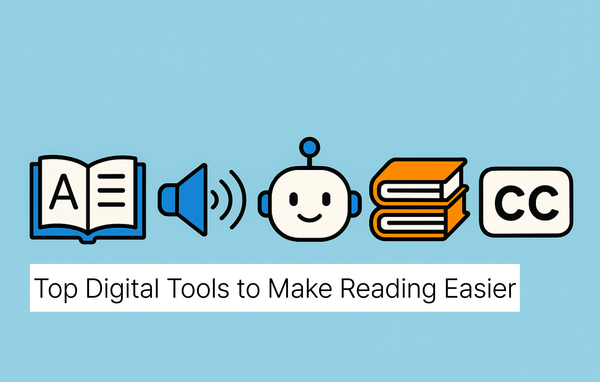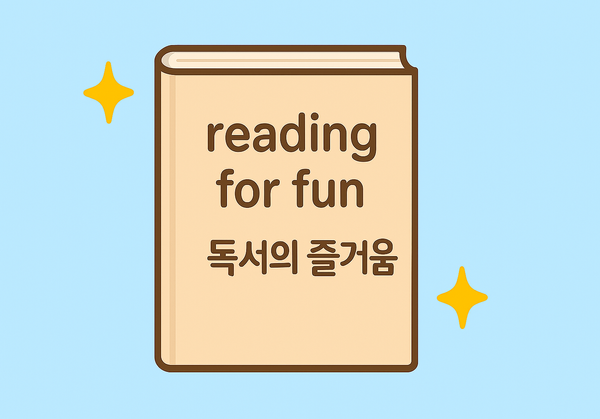How to Motivate Yourself to Read Every Day
Learn how to build a consistent reading habit with proven motivation strategies. Find joy in reading through engaging books, clubs, and creative challenges.

Motivation is a balance between intrinsic motivation - your personal interest in something - and extrinsic motivation, such as rewards or goals.
Within a learning context, it’s important to develop intrinsic motivation, and there are a number of strategies you can employ for others and yourself.
Both play an important role in forming strong reading habits.
If you’re struggling to stay engaged with books, here are some ways to boost your motivation.
- Read something you enjoy.
- Join a reading club.
- Participate in challenges and competitions.
Find out more below about each point.
Why should you read something you enjoy?
One of the easiest ways to build a reading habit is to choose books that genuinely interest you.
Don’t feel pressured to read what others recommend if it doesn’t excite you.
Whether it’s fiction, nonfiction, comics, or audiobooks, the key is to engage with content that captures your curiosity and keeps you turning the pages.
Research shows that most learners engage with the text that interests them. (Earichappan et al., 2024)
…selecting engaging reading material is crucial, as it facilitates exposure to a wide range of vocabulary and grammatical structures in contexts that learners find engaging. (Earichappan et al., 2024)
Choosing text that interests you will boost your comprehension skills.
If you prefer something to guide you, perhaps online tools and applications are more your speed.

What are the benefits of joining a reading club?
Being part of a reading community can make reading more enjoyable and social.
Book clubs provide structured discussions, recommendations, and accountability, which can keep you motivated to read regularly.
Whether in person or online, discussing books with others can deepen your understanding of what you’re reading.
Studies indicate that students’ critical thinking skills improve when participating in book clubs.
…participating in sharing and discussion within the club encourage students to respect others’ opinion and justify their own positions, reflective of their respective levels of critical thinking skills as assessed in reading tests and critical thinking surveys. (Ahmed et al., 2024)
If you don’t know where to find a book club, consider starting your own.
You can read more about the power of group learning in this post.

What are the benefits of participating in reading competitions and challenges?
If you’re competitive, competing against other people can be a strong motivator.
It also lets you stay accountable to other people or external sources to build your internal motivation.
Competitions and other activities have proven to be beneficial in learning contexts.
To develop intrinsic reading motivation, teachers need to provide challenging and meaningful reading tasks, such as reading competitions, retelling stories, (and) personal presentations based on reading texts... (Hong & Zhengdong, 2022)
Set personal reading goals, such as finishing a certain number of books or pages per month.
You can also participate in friendly competitions with friends or online communities.
If you’re competitive, competing against other people can be a strong motivator.
Here are some challenge ideas:
- Read 100 books collectively in a year (as a group).
- Read a chapter a day.
- Learn and study 50 new words.
- Read 52 books a year (1 book a week).
Get creative with it! Make sure it's challenging enough to be interesting, but achievable in the allotted time.

Conclusion
Something like a book club or community challenge can benefit you because others will support and encourage you, building your confidence.
Motivation varies from person to person, so experiment with different methods to find what works best for you.
Happy reading!
References
Earichappan, D., Selvathurai, S., Rusimin, N. A., Valli, M., Ling, T. M., & Hashim, H. (2024). Language learning strategies in enhancing ESL primary school students' reading skills. Universiti Kebangsaan Malaysia. Accessed at this link.
Hong, L., & Zhengdong, G. (2022). Reading motivation, self-regulated reading strategies and English vocabulary knowledge: Which most predicted students' English reading comprehension? Frontiers in Psychology, 13. Accessed at this link.
Ahmed, Imran & Syed, Waqarul & Ali, Zahid. (2024). While-reading Strategies and Their Effectiveness on Reading Comprehension Skill: An Experiment on Secondary School Students in Pakistan. 2790-7724. Accessed at this link.




